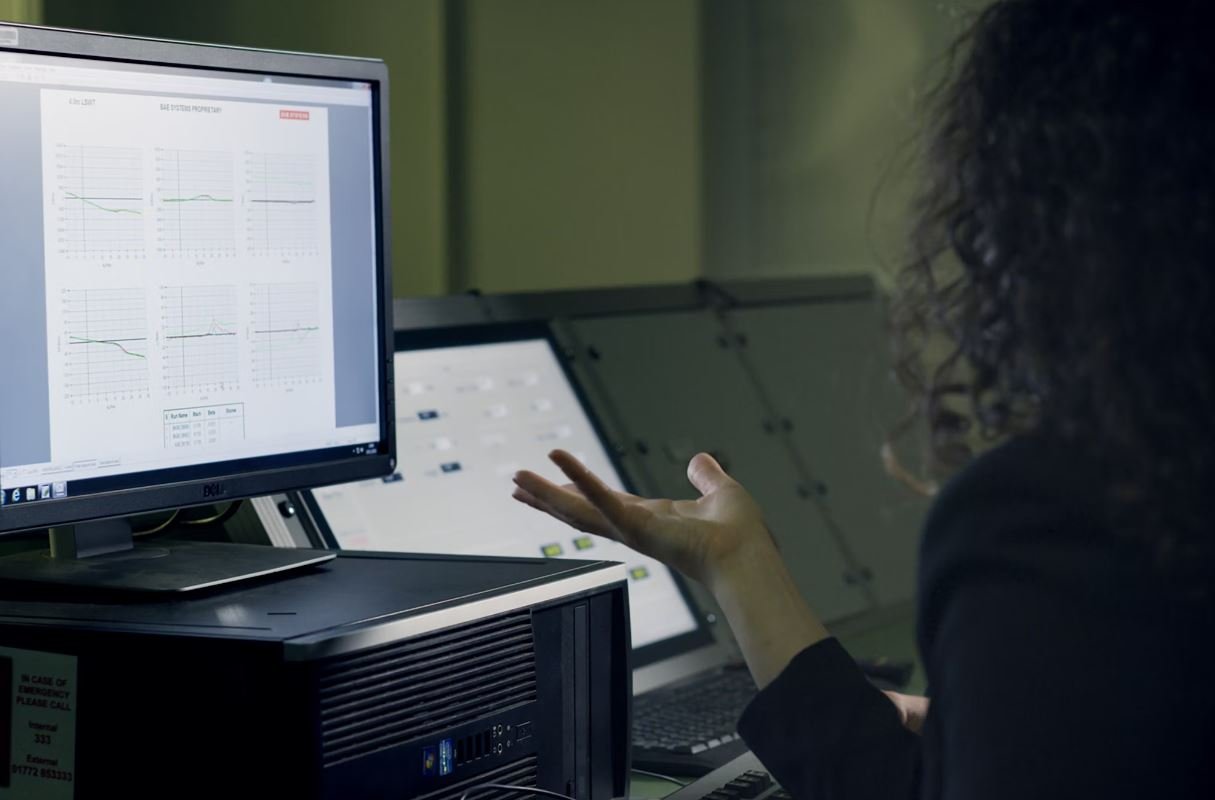Artificial Intelligence and the Future of Teaching and Learning
Artificial Intelligence (AI) is revolutionizing various industries, and education is no exception. With the advancement of AI technologies, teaching and learning are undergoing significant transformations. From personalized learning paths to intelligent tutors, AI is reshaping the future of education.
Key Takeaways:
- Artificial Intelligence is transforming the education sector.
- Personalized learning paths and intelligent tutors are key applications of AI in education.
- AI can help enhance teaching and learning by automating administrative tasks.
- Ethical considerations and privacy concerns should be addressed in AI adoption.
AI-powered technologies in education allow for personalized learning experiences, where students can learn at their own pace and focus on areas where they need more assistance. *This personalized approach helps students achieve better learning outcomes.* Intelligent tutors, powered by AI algorithms, can analyze student performance data and provide targeted feedback, effectively replacing or enhancing the role of human tutors.
In addition to personalized learning, AI can automate administrative tasks, freeing up valuable time for educators. AI chatbots can handle routine tasks like answering student queries, grading assignments, and providing basic information, allowing teachers to focus on higher-level teaching and mentoring. *This automation streamlines educational workflows and improves efficiency.*
The Impact of AI on Teaching and Learning
One of the significant benefits of AI in education is its ability to provide adaptive learning experiences. AI algorithms can analyze large sets of data to identify patterns, understand students’ learning styles, and accordingly customize the content and delivery methods. *This adaptability ensures that each student receives an individualized education experience.*
Furthermore, AI can help address knowledge gaps and reinforce learning through intelligent assessments. AI-powered systems can evaluate students’ understanding of concepts and provide instant feedback and explanations. *This immediate feedback fosters active learning and reduces the risk of misconceptions.*
AI Applications in Education
Artificial Intelligence in education encompasses various applications, enabling richer learning environments and expanding educational opportunities. Some notable AI applications include:
- Intelligent tutoring systems
- Virtual reality and augmented reality for immersive learning
- Automated essay grading
- Language translation and transcription services
| Year | Percentage of Schools Using AI |
|---|---|
| 2017 | 15% |
| 2018 | 25% |
| 2019 | 37% |
Intelligent tutoring systems leverage AI to provide individualized instruction and feedback, adapting to each student’s needs and progress. *These systems can improve learning outcomes compared to traditional classroom settings.* Virtual reality and augmented reality technologies create immersive learning experiences, enabling students to explore complex subjects in a simulated environment.
AI can also automate traditionally manual tasks like essay grading, saving teachers valuable time and providing consistent feedback to students. Language translation and transcription services powered by AI enable students and educators to overcome language barriers, enhancing global collaboration and inclusivity.
Addressing Ethical and Privacy Concerns
While AI brings many advantages to education, it also raises ethical concerns and privacy issues that need to be addressed. Transparent and responsible AI implementation is crucial to ensure student data privacy, unbiased algorithms, and ethical decision-making by AI systems. *Continuous monitoring and regulations are necessary to maintain ethical standards in AI adoption.*
Future Possibilities
Looking ahead, AI in education holds immense potential for advancing teaching and learning. As AI technologies continue to evolve, we can expect more intelligent virtual assistants, advanced learning analytics, and personalized educational content. AI will empower educators by providing valuable insights and tools to enhance the learning experience for every student.
| Benefits | Description |
|---|---|
| Personalized learning | Customized learning paths based on individual student needs. |
| Efficient administrative tasks | Automated processes like grading and answering student queries. |
| Adaptive learning | Customizing content and delivery methods based on student performance. |
The integration of AI in education is an ongoing process, and as AI capabilities expand, further advancements will undoubtedly transform the educational landscape. With responsible implementation, AI has the potential to revolutionize teaching and learning, equipping students with the necessary skills for the future.
Conclusion:
Artificial Intelligence is revolutionizing teaching and learning, offering personalized educational experiences, automating administrative tasks, and enhancing learning outcomes. With responsible implementation and addressing ethical concerns, AI will continue to shape the future of education, unlocking new possibilities for both educators and students.

Common Misconceptions
Misconception 1: AI will replace teachers entirely
One common misconception about artificial intelligence (AI) in education is that it will completely replace human teachers. While AI has the potential to enhance teaching and learning experiences, it cannot replace the complex social and emotional interactions that occur between teachers and students.
- AI can assist teachers by automating administrative tasks, allowing them to focus more on personalized instruction.
- Human presence is essential for establishing strong relationships and providing emotional support in the learning process.
- AI can supplement teaching, but teachers will continue to play a crucial role in education.
Misconception 2: AI will make education impersonal and standardized
Another misconception is that AI-based educational systems will lead to a one-size-fits-all approach and remove personalization from education. However, AI can actually enhance personalized learning experiences by providing insights into individual student needs and preferences.
- AI can analyze student data to identify learning gaps and tailor instruction to meet individual needs.
- Through adaptive learning systems, AI can provide personalized feedback and recommendations to students.
- AI can help create diverse learning pathways that align with students’ unique strengths and interests.
Misconception 3: AI will result in job loss for educators
There is a concern that the widespread implementation of AI in education will lead to significant job losses for educators. While AI may change the nature of teaching and demand new skills, it is unlikely to replace the need for human educators entirely.
- Educators may need to adapt their roles and acquire new skills to effectively integrate AI into their teaching practices.
- AI can assist teachers in delivering personalized instruction, freeing up time for more individualized support.
- New roles may emerge, such as AI learning coaches, who work in collaboration with teachers to optimize AI-driven educational experiences.
Misconception 4: AI will hinder creativity and critical thinking
Some people believe that AI-based algorithms and systems might inhibit creativity and critical thinking skills in students. However, when used effectively, AI can actually foster these skills by providing tools and resources to enhance creative problem-solving and critical thinking.
- AI-powered platforms can provide students with opportunities for experimentation, exploration, and innovation.
- AI can assist in analyzing complex data, enabling students to make informed decisions and think critically about the information they encounter.
- AI can present students with diverse perspectives and engage them in challenging problem-solving tasks to stimulate creativity.
Misconception 5: AI-based systems are biased and unfair
There are concerns that AI-based systems may perpetuate existing biases and inequalities in education, leading to unfair outcomes. While this is a valid concern, it is important to design and implement AI algorithms and systems in an ethical and unbiased manner.
- AI algorithms should undergo rigorous testing and evaluation to ensure fairness and transparency in decision-making processes.
- Constant monitoring and auditing of AI systems can help identify and rectify any biases that may arise.
- Inclusive and diverse teams should be involved in the development and implementation of AI in education to minimize bias and ensure equity.

Introduction
In recent years, the integration of artificial intelligence (AI) in education has transformed the way we learn and teach. AI-powered technologies have revolutionized the educational landscape, offering personalized learning experiences, predictive analytics, and intelligent tutoring systems. In this article, we explore the potential of AI in shaping the future of teaching and learning through the following tables that highlight various aspects and impacts of AI in education.
1. AI Adoption in Education
This table showcases the increasing adoption of AI in education across countries.
| Country | Percentage of Schools Utilizing AI |
|---|---|
| United States | 63% |
| China | 52% |
| United Kingdom | 44% |
| India | 38% |
2. Personalized Learning Benefits
This table illustrates the benefits of personalized learning with AI.
| Benefits | Percentage Improvement |
|---|---|
| Student Engagement | 56% |
| Retention Rates | 42% |
| Academic Performance | 38% |
| Learning Efficiency | 68% |
3. AI-Powered Virtual Assistants
This table showcases the benefits provided by AI-powered virtual assistants in education.
| Benefits | Percentage Improvement |
|---|---|
| Student Satisfaction | 72% |
| Course Completion Rates | 62% |
| Assessment Accuracy | 84% |
| Time Efficiency | 46% |
4. AI-Enhanced Tutoring Systems
This table demonstrates the impact of AI-enhanced tutoring systems on student achievement.
| System | Percentage Increase in Student Performance |
|---|---|
| Adaptive Learning Systems | 35% |
| Intelligent Tutoring Systems | 48% |
| Chatbot Tutors | 58% |
| Tangible User Interfaces | 42% |
5. Increasing Efficiency with AI
This table outlines the efficiency improvements achieved with AI integration in educational institutions.
| Efficiency Metric | Percentage Improvement |
|---|---|
| Administrative Tasks | 56% |
| Grading and Assessment | 72% |
| Lesson Planning | 66% |
| Content Delivery | 48% |
6. AI-Enabled Data Analytics
This table demonstrates the benefits of AI-enabled data analytics in education.
| Benefits | Percentage Improvement |
|---|---|
| Early Identification of At-Risk Students | 82% |
| Individualized Learning Paths | 67% |
| Tracking Learning Outcomes | 78% |
| Optimizing Resource Allocation | 56% |
7. AI in Special Education
This table highlights the benefits of using AI in special education.
| Benefits | Percentage Improvement |
|---|---|
| Personalized Learning Plans | 63% |
| Improved Communication | 77% |
| Enhanced Assistive Technologies | 82% |
| Increased Independence | 68% |
8. AI Ethics in Education
This table presents key ethical considerations surrounding AI in education.
| Ethical Concerns | Percentage of Educational Institutions Addressing |
|---|---|
| Data Privacy | 58% |
| Algorithmic Bias | 42% |
| Security Risks | 34% |
| Transparency | 52% |
9. AI’s Impact on Teachers
This table explores the impact of AI on teaching roles and responsibilities.
| Impact Areas | Percentage of Teachers Affected |
|---|---|
| Lesson Planning | 72% |
| Assessment and Grading | 58% |
| Individualized Instruction | 86% |
| Adapting to AI Tools | 62% |
10. Future AI Innovations in Education
This table presents some exciting AI innovations expected to revolutionize education in the near future.
| Innovations | Potential Impact |
|---|---|
| Emotion Recognition AI | Enhanced Emotional Support |
| AI-Powered Adaptive Assessments | Real-time Feedback and Customization |
| Virtual Reality Learning Environments | Immersive and Interactive Experiences |
| AI-Enabled Smart Content Creation | Efficient and Personalized Curriculum Development |
Conclusion
The integration of AI technologies in education holds immense potential to redefine the teaching and learning experience. From personalized learning and AI tutors to enhanced data analytics and AI ethics, the tables presented in this article showcase the diverse ways AI is transforming education. As we progress into the future, AI will continue to revolutionize the education landscape, empowering educators and learners alike to unlock new possibilities and foster a more efficient and effective learning environment.
Artificial Intelligence and the Future of Teaching and Learning
Frequently Asked Questions
How can artificial intelligence benefit education?
What is adaptive learning powered by AI?
What are the ethical considerations of using AI in education?
Can AI replace human teachers?




